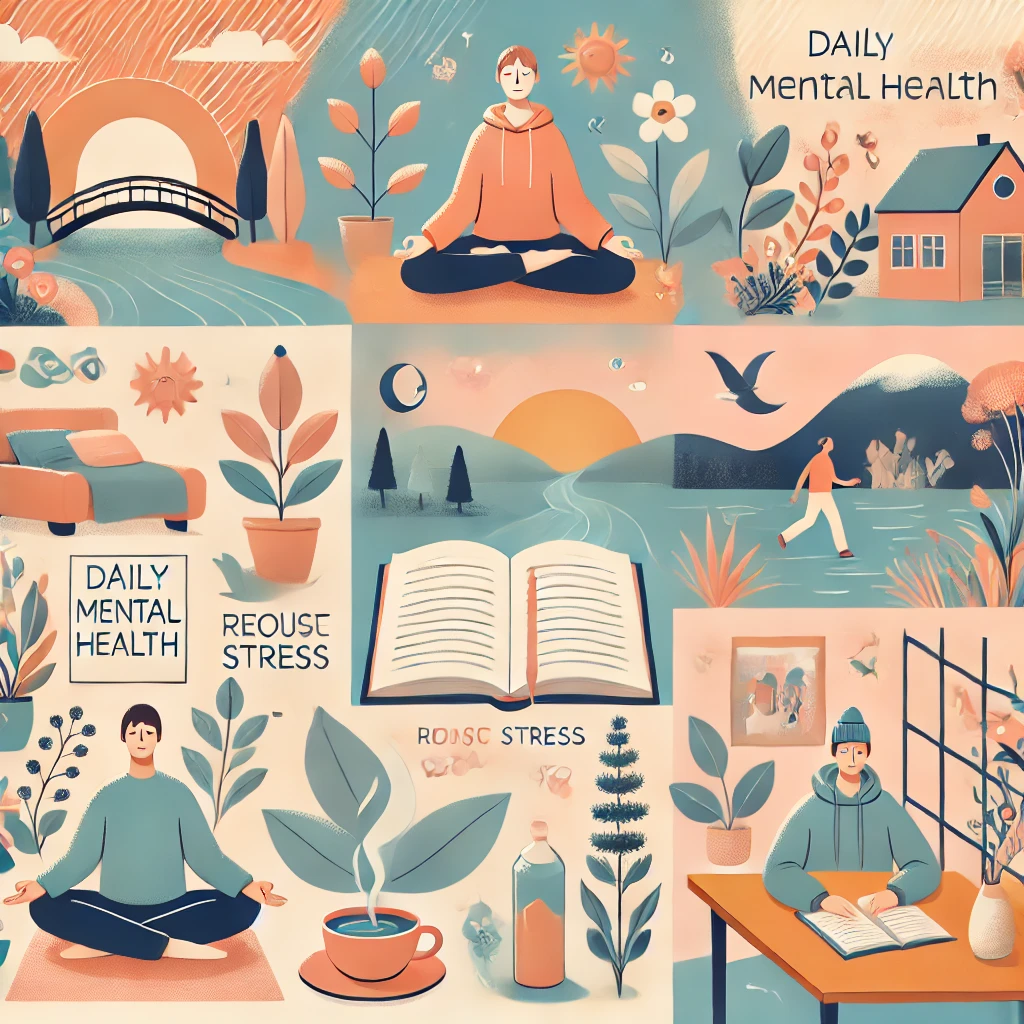
Daily Mental Health Tips to Boost Your Mood and Reduce Stress
Simple, science-backed strategies to help you feel better every day.
Why Mental Health Matters
Ever felt like life is one never-ending to-do list? You're not alone. In our fast-paced world, stress and anxiety have become the norm. But taking care of your mental health isn’t just about avoiding breakdowns—it's about thriving. A healthy mind leads to better relationships, improved productivity, and even a longer life.
1. Start Your Day with a Mindful Morning Routine
The way you start your day sets the tone for everything that follows. Whether it’s meditation, deep breathing, or just sipping your coffee in peace, a mindful morning routine can boost your mood and keep stress at bay.
2. Move Your Body with Fitness Routines
Exercise isn't just for looking good—it's a game-changer for mental health. From a quick stretch to a full workout, movement releases endorphins, your brain’s natural happy chemicals.
How to Create a Personalized Fitness Plan
Not all workouts are created equal. Tailor your fitness routine to match your lifestyle and goals. Love dancing? Try Zumba. Prefer solitude? A long walk might be your thing.
3. Eat Foods That Fuel Your Mind
Your gut and brain are best friends. Healthy eating plans that include whole foods, lean proteins, and omega-3-rich options like salmon can help stabilize mood and energy levels.
Top 10 Diet Tips to Maintain a Healthy Lifestyle
Want to keep your mind sharp? Reduce processed foods, stay hydrated, and include brain-boosting foods like berries, nuts, and leafy greens in your diet.
4. Practice Simple Meditation Techniques
You don’t have to sit in a cave for hours to reap the benefits of meditation. Just five minutes of focused breathing can help reduce anxiety and improve concentration.
Best Mindfulness Practices for Reducing Stress
From guided meditations to body scans, there’s a practice for everyone. Experiment with different techniques to find what works for you.
5. Prioritize Sleep for a Healthier Mind
Lack of sleep isn’t just making you tired—it’s hurting your mental health. Sleep is when your brain resets, processes emotions, and prepares for a new day.
The Connection Between Sleep and Productivity
Better sleep equals better focus, memory, and problem-solving skills. Set a bedtime routine, avoid screens before bed, and stick to a consistent sleep schedule.
6. Unplug from Technology
Scrolling endlessly? Social media can be overwhelming. Take regular digital detoxes to reconnect with yourself and the world around you.
7. Spend Time Outdoors
Nature is a natural stress reliever. A quick walk in the park or sitting in the sunlight can instantly lift your mood.
8. Practice Gratitude Daily
Gratitude shifts your focus from what’s wrong to what’s right. Start or end your day by listing three things you're grateful for.
9. Stay Connected with Loved Ones
Humans are social creatures. A heartfelt conversation with a friend or family member can do wonders for your mental well-being.
10. Engage in a Hobby
Doing something you love—whether it’s painting, playing an instrument, or gardening—reduces stress and brings joy.
11. Use Affordable Fitness Equipment at Home
Can’t make it to the gym? No worries! Resistance bands, yoga mats, and jump ropes are budget-friendly options to stay active.
Affordable Fitness Routines for Busy Professionals
Short on time? Try high-intensity interval training (HIIT) or a quick yoga session to keep your body moving.
12. Keep a Journal
Writing down your thoughts helps you process emotions and gain clarity. It’s like therapy but free!
13. Learn to Say No
Overcommitting leads to burnout. Set boundaries and prioritize your well-being over pleasing others.
14. Laugh More
Laughter really is the best medicine. Watch a funny video or spend time with someone who makes you laugh.
15. Seek Professional Help When Needed
There’s no shame in seeking therapy or counseling. Sometimes, talking to a professional is the best step you can take for your mental health.
Frequently Asked Questions
1. What are the best exercises for mental health?
Cardio, yoga, and strength training all help reduce stress and boost mood.
2. How can I manage stress daily?
Practice mindfulness, stay active, eat well, and get enough sleep.
3. Is there a connection between diet and mental health?
Yes! A balanced diet with whole foods and healthy fats improves mood and brain function.
4. How much sleep do I really need?
Aim for 7-9 hours of quality sleep for optimal mental and physical health.
5. Can I improve my mental health without therapy?
Absolutely! Lifestyle changes, self-care, and strong social connections all contribute to better mental health.